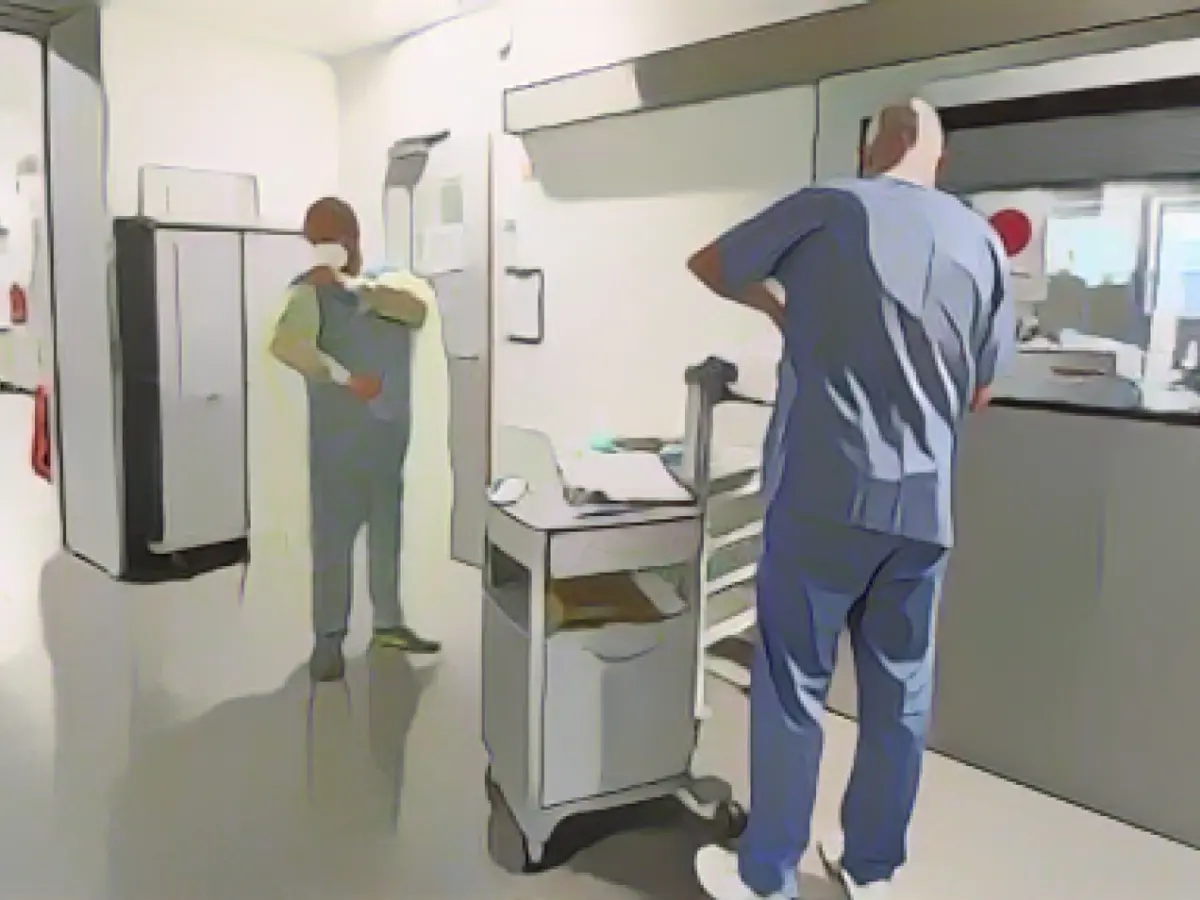Hospital association: Respiratory tract infections cause staff shortages in clinics
"In normal times, eight percent of the workforce is missing, now it's ten to twelve percent," said Gaß. "This poses major challenges for the clinics."
The first wards are having to suspend operations. "Some hospitals are already closing beds or wards again because they no longer have enough staff," said Gaß. In the past, hospitals often compensated for seasonal shortages with temporary staff. However, these temporary staff are "very expensive". "Many hospitals no longer have the money for this," said the DKG boss.
He looks to the coming months with concern. "We expect a further increase in infections among patients and staff in winter," says Gaß. After all, the flu wave "hasn't even really started yet", said Gaß. He warned against underestimating the flu. There were 25,000 deaths from influenza in Germany in 2018.
"To avoid overburdening the healthcare system, we are appealing to the population to get vaccinated in line with the recommendations," said Gaß.
The Standing Committee on Vaccination (Stiko) recommends that people over the age of 60, people with underlying illnesses, residents of care facilities and medical and nursing staff get an annual flu vaccination as well as an annual coronavirus booster vaccination. Both vaccines can be administered at the same time.
Lesen Sie auch:
The hospital association acknowledges that respiratory tract infections are leading to staff shortages in clinics, with up to 12% of the workforce absent currently. This is causing significant challenges for the hospitals, with some even suspending operations or closing beds and wards due to lack of staff. Gaß, the DKG boss, mentioned that temporary staff, which were often used to compensate for seasonal shortages, are expensive and many hospitals can't afford them.
In a worrying prediction, Gaß anticipates a further increase in infections among patients and staff during the winter months, as the flu wave hasn't yet started in full force. He urged the population to get vaccinated in accordance with recommendations, warning against underestimating the flu, which resulted in 25,000 deaths in Germany in 2018.
In addition to the annual flu vaccination, Stiko recommends an annual coronavirus booster vaccination for individuals over 60, those with underlying illnesses, residents of care facilities, and medical and nursing staff. Both vaccines can be administered simultaneously.
This increasing staff shortage and the anticipated rise in infections are major concerns for the Rheinische Post and the wider German medical community, as they can potentially overwhelm the already strained hospital system.
The Rheinische Post further reported that hospitals are facing a persistent staff shortage, impacting public and private clinics alike, making it difficult for the hospitals to provide adequate care, especially during the peak of respiratory tract infections like Coronavirus and the flu.
In such a scenario, hospitals in Germany are dealing with not just one health crisis but multiple concurrent crises, with respiratory infections, and the staff shortage resulting from them, straining the healthcare system to its limits.
Source: www.stern.de







